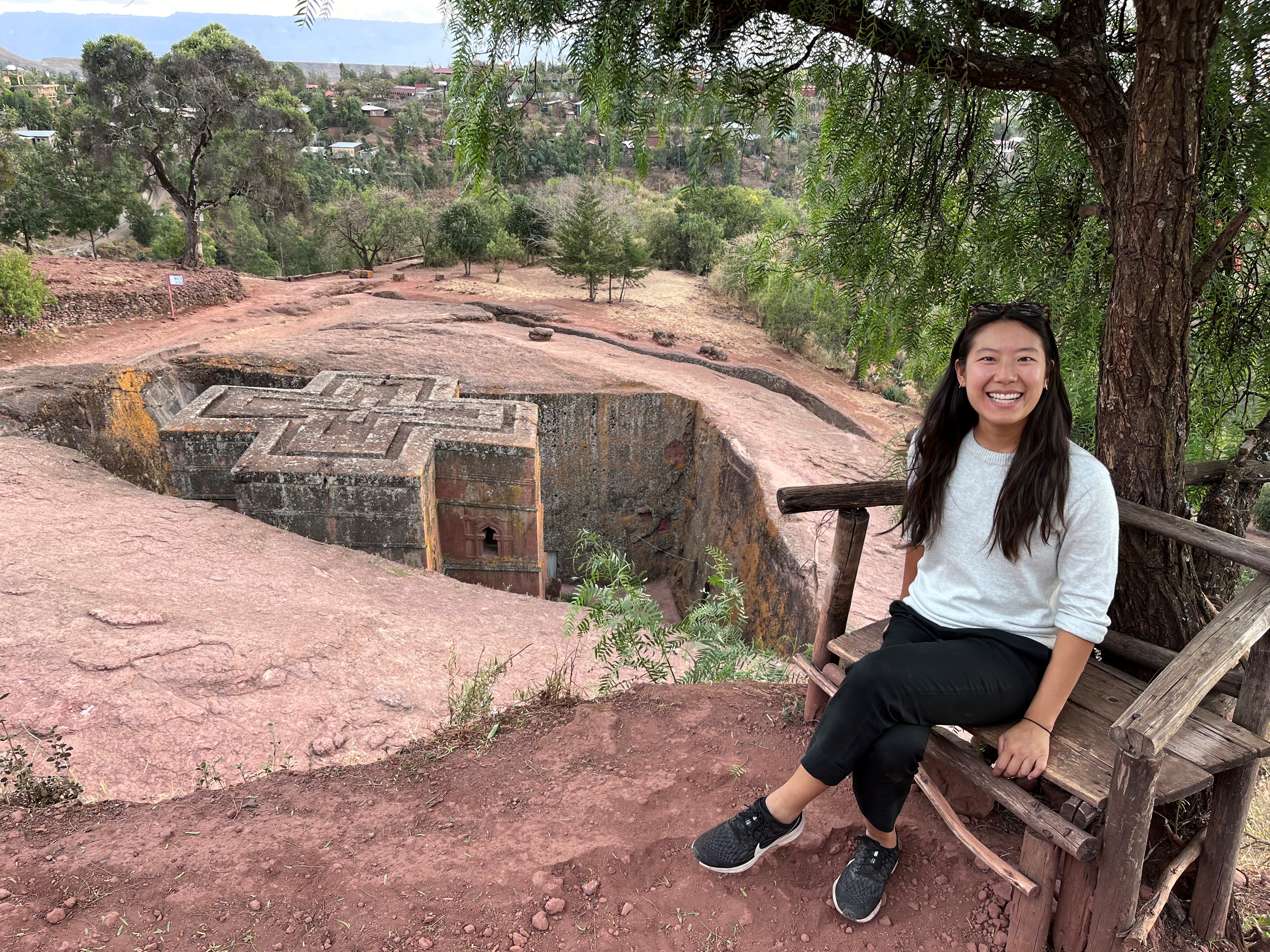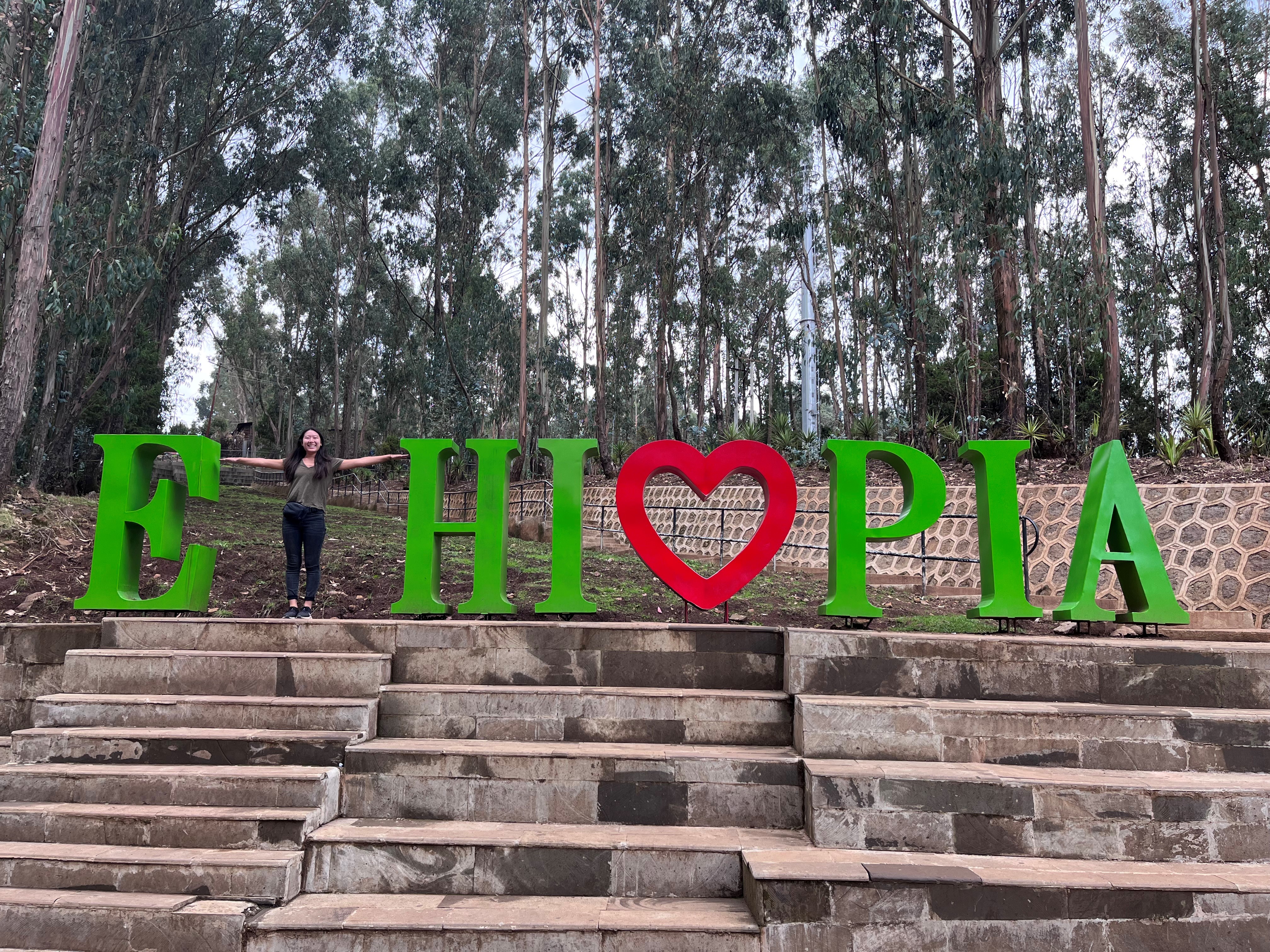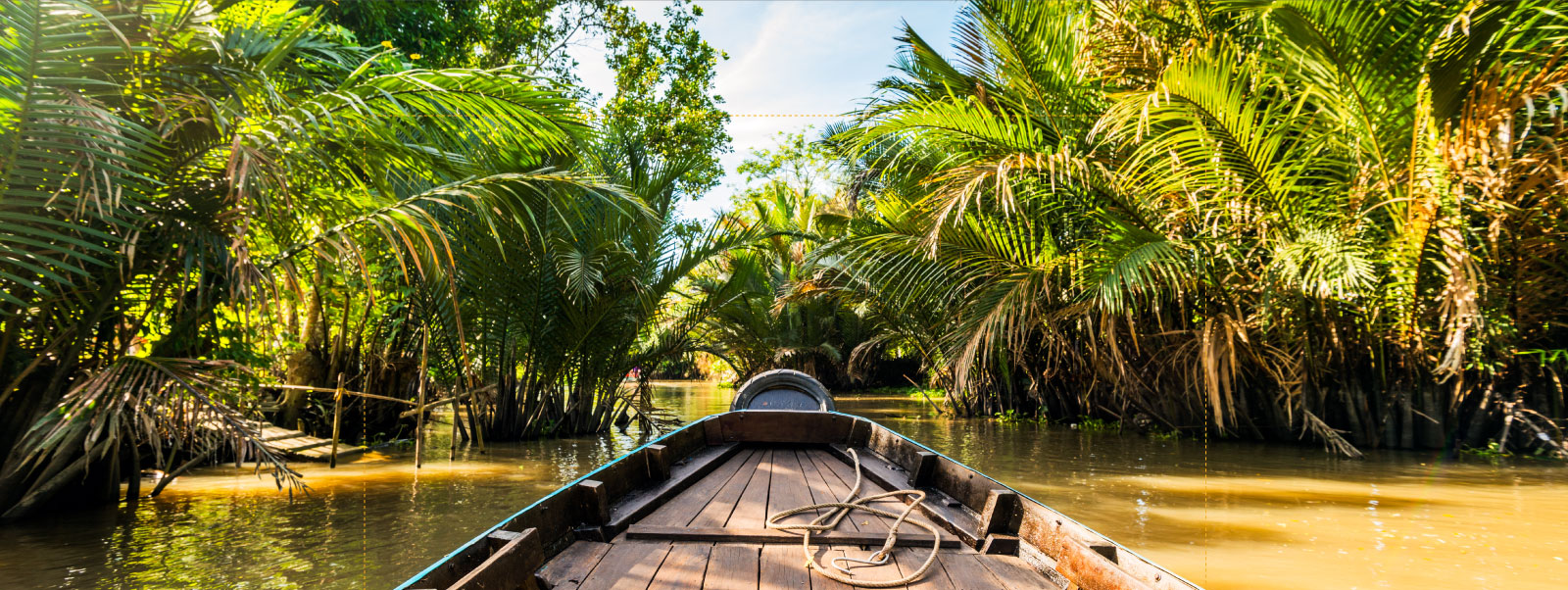I embarked on my non-profit fellowship to support TechnoServe — an international nonprofit that leverages business solutions to help alleviate poverty in developing countries — with two agriculture projects. The first one was in Cambodia for almost four months, and for the next one, I spent two months working on a project in Ethiopia.
I was extremely excited to embark on this journey — I had studied earth systems, anthropology, and management sciences and engineering at Stanford University and I was keen to work at the intersection of social inclusion, climate change, and business to best support marginalized communities. A nonprofit fellowship sounded like an amazing opportunity to pursue this in a global context.

Cambodia: Ready for farmer financing and resilience to climate change
My first TechnoServe project was supporting a foreign government embassy client in Cambodia with a comprehensive study of Cambodia’s agriculture sector. We focused on identifying ways to improve climate resilience and increase incomes and inclusion of smallholder farmers, who represent the vast majority of rural household jobs. Following more than 40 interviews with smallholder farmers, agriculture businesses, local and international government bodies, organizations, nonprofits, and financial institutions, we learned about several pain points related to access to affordable financing, limited solutions in place to help farmers mitigate crop losses (up to ~80% of losses per season) due to climate change, lack of connectivity between farmers and agriculture food processors, and more. We devised and successfully presented proposed solutions with our client to the Ministry of Agriculture in Cambodia, and now TechnoServe is working on implementing these findings with the client locally.
I spent my free time exploring the incredible wildlife at rescue centers with elephants, macaques, and sun bears, kayaking on the Mekong River to spot endangered irrawaddy dolphins, and watching six million wild bats synchronously leave a cave at sunset. Incredible!

Ethiopia: Seeking food security and climate resilience solutions
After a couple weeks of break hanging out with friends in Bali and my family in the Philippines, I traveled to Addis Ababa, Ethiopia to run a similar study for an African-led institution focused on sustainably growing food systems in Africa. Most of the Ethiopian workforce is employed in the agriculture sector today, while the country — which sits on the Horn of Africa — is one of the most high-risk ones for famine today.
Our focus was not just on finding solutions to drive smallholder farmer incomes and increase climate change mitigation, but to also increase food security. We identified tangible ways for our client to work with Ethiopia’s government, NGOs, and donors such as USAID to provide technical farming assistance and access to financing, and to influence policy to benefit farmers, which the clients were pleased to receive and noted were useful findings.
Through this work, I was able to meet so many amazing people locally, who introduced me to Ethio-jazz music and taught me Ethiopian dance moves. We also ate a lot of injera — which, in Ethiopian culture, is a social affair and not something to be undertaken solo. I quickly discovered this fact during my first meal, when I received a lot of curious stares while trying to eat a massive injera meant for three people. I travelled with new friends to Lalibela, a holy city with breathtaking rock-cut churches that date to the 13th century, and also to attend a grand street Iftar in Addis with thousands of others. With more than 90 distinct ethnic groups, Ethiopia contains a rich array of cultural, religious, and linguistic diversity – I deeply enjoyed the opportunity to learn more about this diversity firsthand through local travels, museum visits, and discussions with people in Ethiopia, and can’t wait to visit again.

Lifelong lessons and connections
I landed in Cambodia and Ethiopia having never visited and not knowing anyone on the ground, but left with a deeper understanding of the culture, close, lifelong friendships and communities, and a non-stop craving for Khmer and Ethiopian food! One of the most important lessons I learned is the importance of really trying to understand the local culture and nuances in order to foster an atmosphere of respect and open communication.
Throughout this time, I was also able to visit friends — including from Oliver Wyman — and family. I’m so grateful for the skills I’ve learned at Oliver Wyman and the opportunity to apply them in a small way to support smallholder farmers through this fellowship program.
This was an experience I will forever cherish and that has been instrumental in shaping my views of the world and the impact I’d like to makeJackie Phi, Principal, Oliver Wyman


.jpg.imgix.sidebar.jpg)